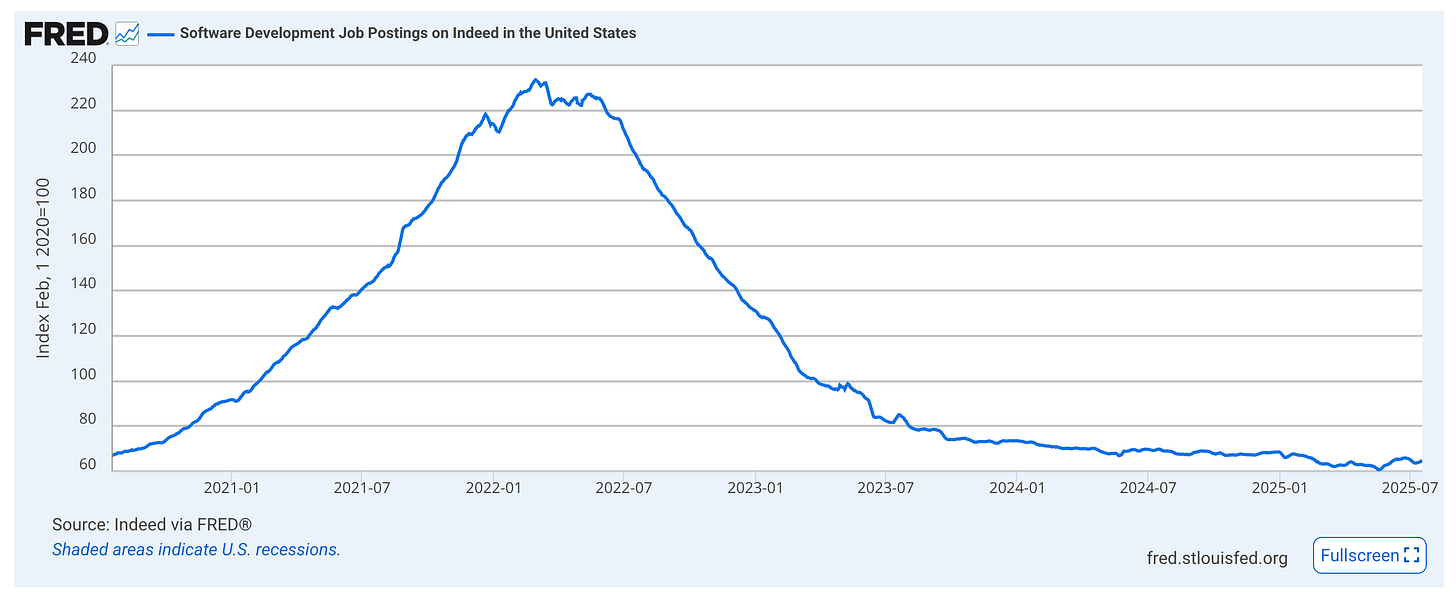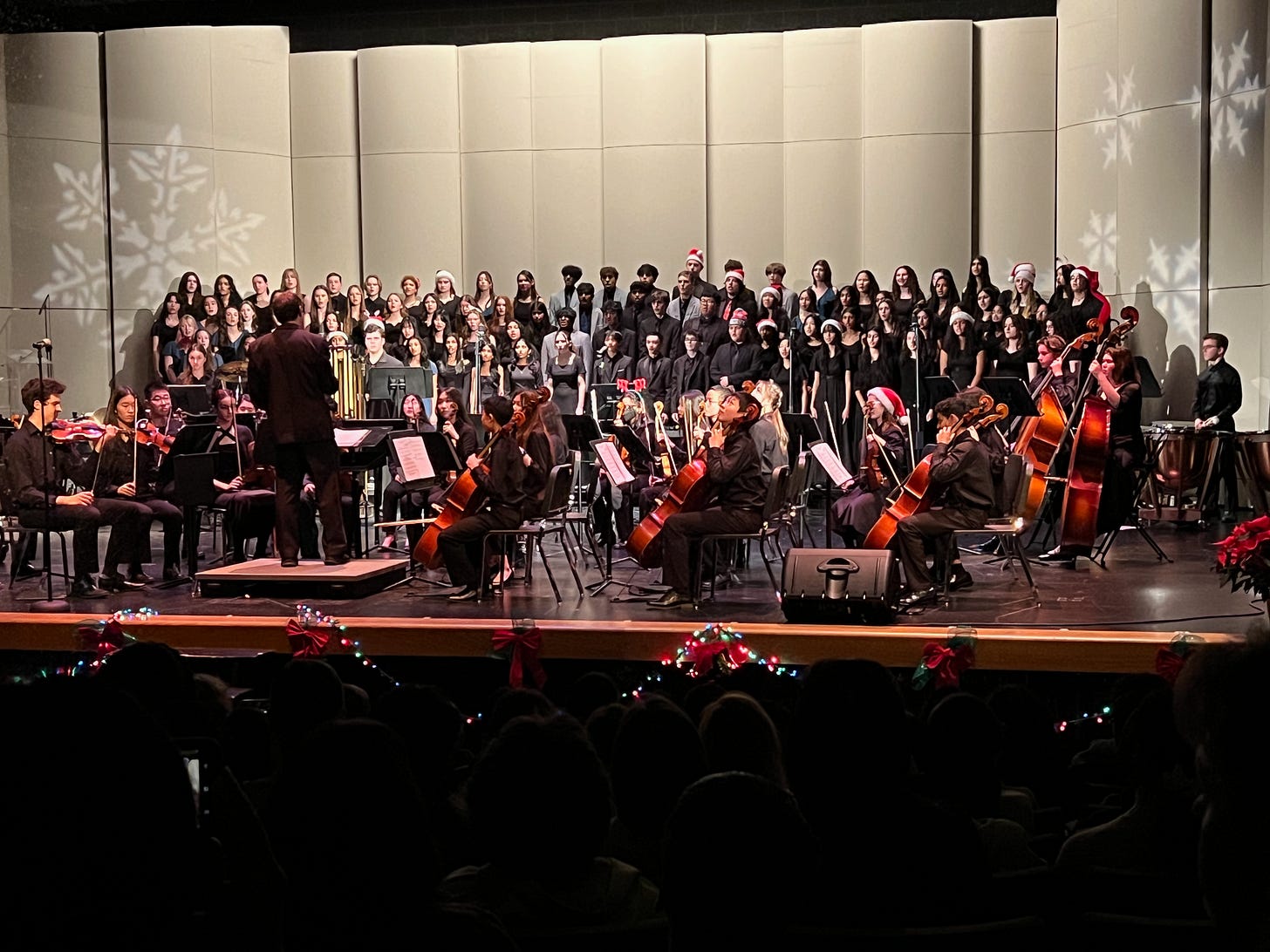Being A (Human) College Student in the Age of AI
Why mastering resilience, authentic connection, and lifelong learning matters now more than ever in an AI-driven world.
Today’s college-bound kids, Generation Z, are often called “digital natives”. They are characterized by their seamless integration with technology and the internet, having grown up with it as an always-available part of their lives.
This is particularly true of the class of 2026 (rising high school seniors who will begin applying to colleges in just a few short weeks), who have never known a world without iPhones.
Generation Beta, the generation born starting this year, is set to be the first generation to be raised in a world where AI is embedded into daily life, making them "AI natives".
Today’s college-bound students must learn to work with AI on a compressed timeline. And this impacts how they approach college.
Two questions I hear often:
Will my college degree still matter?
Is AI’s impact over- or under-hyped?
Will My College Degree Matter?
We read about AI already being better at math than most, providing more accurate medical diagnoses than most, and potentially obviating many other esteemed knowledge-based career paths. We also read about AI “agents”, AI already doing the work of, and obviating the need for, humans.
And of course we read warnings about computer science as a career path.
We don’t yet know which jobs AI will replace, and which it will transform.
But college has always been about two things:
1. Learning how to learn.
“Gen Z can expect to have 16-17 jobs across 5-7 careers.”
https://study.uq.edu.au/stories/how-many-career-changes-lifetime
In high school, many of us sped through assignments just to check a box.
I don’t think this is the fault of students - it's a systemic issue.
Today’s college students will travel many paths over the course of their careers. And they will need to retool. Again and again.
The ability for students to teach themselves will outlast any specific AI skill.
A lifelong desire to learn will outlast any short term gains.
So it’s probably not so much what college students learn re: specific domain knowledge or expertise. In time, AI will probably do better than the majority of experts across just about every domain.
It is instead that college students have discovered how they learn, and to embrace learning opportunities.
2. Building human relationships.
You also go to college to meet and discover how to get along with people.
You broaden your horizons. You cross paths with other students from different backgrounds and with different stories from your own. You experience inter-personal conflict (e.g. roommate drama, group projects, etc…) and how to navigate it.
And you start building your network.
I met my wife in college.
Relationships paved my way to jobs post graduate school.
In the age of AI, human-to-human relationships are likely to have even more value.
College is the place to forge networks that will last far longer than any AI algorithm’s memory.
Is AI’s impact over- or under-hyped?
I’m reminded of this Bill Gates line:
"Most people overestimate what they can do in one year and underestimate what they can do in ten years."
In one year’s time, we’re probably not going to have AI systems that can do everything you and I can do. Or see the arrival of the much-hyped “Superintelligence”.
But over a longer period of time? It does seem pretty likely.
I continue to argue that AI’s impact is under-hyped.
Today’s AI models are impressive, and they’re only going to get better. We’re probably under-estimating how deeply AI will reshape every field.
Which is why college-bound students need to focus on skills machines can’t easily replicate - resilience and authenticity.
Resilience
When (“when”, not “if”...) AI upends your chosen field, you won’t panic… you’ll pivot.
As just one recent example of “wait… AI can now do that???” - Isomorphic Labs Prepares to Launch Human Trials for AI-Designed Drugs.
If you're a student planning a career in everything from medicine to philosophy, this probably impacts you and your future. There will be many more advances like this in the future.
A life-skill for the college-bound student is resilience.
Practice recovery. Treat failures as data, and analyze, iterate, and advance.
Treat advances in technology that impact you as moments to invest in yourself.
It’s a human life skill to be able to bounce back stronger.
Authenticity
AI can draft essays, solve equations, even brainstorm ideas.
But it cannot fully replicate your authentic self.
Use AI as a tool, not a substitute.
Honor course policies. Some professors embrace AI; others forbid it. The same goes for completing college apps (the University of Michigan’s law school application now has a question specifically designed so that applicants *must* use AI; Cal Tech outlines “ethical use” in order to encourage authenticity).
Own your voice and submit work that reflects your perspective, not just an AI’s.
Your quirks, values, and insights are assets.
Don’t seed these to AI.
Students, What Should You Do Next?
Choose growth-oriented colleges.
This means seeking schools that best cultivate your ability to learn how to learn, build relationships, foster resilience, and speak with your authentic voice.
Admittedly, these attributes aren’t necessarily hard facts and figures that you can compare (sure, many of you would prefer to zoom-in on a college’s admission % for applying ED vs RD, but these other less measurable attributes may be more important).
To do this well you’re going to need to go a click deeper, and talk to the schools. Visit them. And even hear from other students who attend.
It might also require looking beyond the “best” label other people have assigned to a college or university and really being honest with yourself about what is “best” - for you.
Invest in relationships.
Prioritize communities where you will need to grow socially, and that have active student engagement.
Build your resilience muscle.
Embrace challenges, solicit feedback, iterate.
Adopt AI responsibly, now.
Think of all the ways AI use can help you as college-bound students right now:
Research topics
Refine arguments
Study
Communicate with clarity
Plan
Ideate
More…
Experiment with tools, learn ethical guidelines, but always add your human touch.



